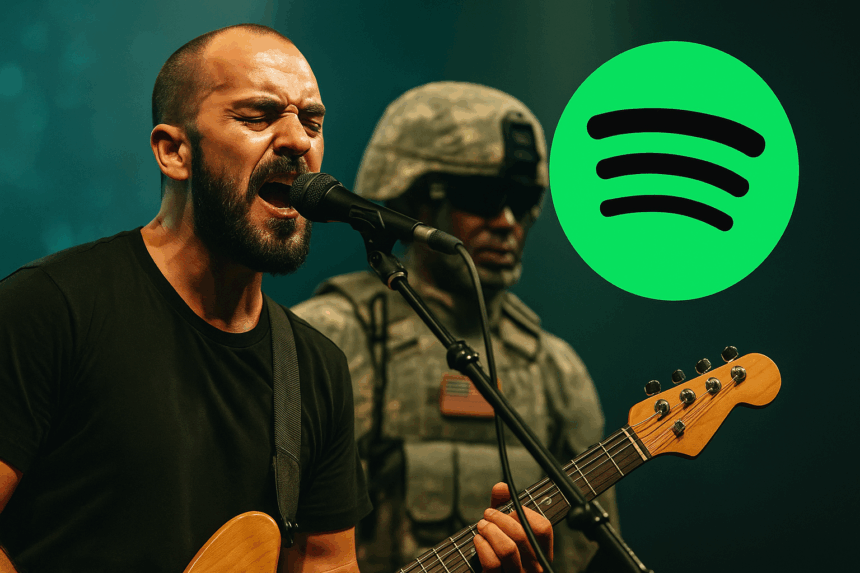Massive Attack has taken a bold stand against the intersection of music and military technology by pulling their entire catalogue from Spotify. The decision comes after revelations that Spotify founder Daniel Ek invested €600 million (£520 million) in the defence tech company Helsing. Helsing specialises in AI-powered battlefield analysis and drone technology.
What’s Happening & Why This Matters

The iconic British trip-hop band announced their decision while joining the No Music for Genocide initiative. This campaign, supported by over 400 artists and labels, blocks music from streaming services in Israel as a response to ongoing violence in Gaza. However, Massive Attack clarified that their decision to leave Spotify was independent of this initiative.
In a powerful statement, the band said a moral obligation drove their choice.
“The economic burden long placed on artists is now compounded by a moral and ethical burden,” Massive Attack stated. “Fans’ money and musicians’ creativity ultimately fund lethal, dystopian technologies.”
Helsing, the company at the centre of the controversy, creates AI tools to analyse sensor and weapons system data. This enables real-time battlefield decisions. They also produce the HX-2 military drone. Helsing insists their technology is only deployed in Ukraine to support European defence against Russian aggression.
“Our technology is deployed to European countries for deterrence and defense against Russian aggression in Ukraine only,” Helsing said in response to the backlash.
Spotify, for its part, noted that it has no direct ties to Helsing and no involvement in the Gaza conflict.
“Spotify and Helsing are two totally separate companies,” a spokesperson said.
Growing Artist Protest

Massive Attack joins a growing list of artists and bands such as King Gizzard and the Lizard Wizard, Godspeed You! Black Emperor, Hotline TNT, and Deerhoof. They have all removed their music from Spotify in protest of Helsing’s defence activities. Unlike some independent acts that moved their music to Bandcamp, Massive Attack is restricted by major label contracts and cannot make their catalogue freely available elsewhere.
King Gizzard’s move to Bandcamp saw all 27 of their albums claim the top 27 spots on the platform. This presents an alternative to the leading streaming models.
The No Music for Genocide campaign has also attracted prominent artists like Rina Sawayama, Amyl and the Sniffers, and Jockstrap. These musicians are using geo-blocking to restrict access to their music in specific regions or are fully withdrawing their content.
The Political Edge
Massive Attack is outspoken about the role of art in political movements. In an Instagram post, they drew parallels between today’s conflicts and the global anti-apartheid efforts of the past:
“In 1991, the scourge of apartheid violence fell from South Africa, aided by boycotts, protests, and the withdrawal of work by artists and musicians. In 2025, the same applies to the genocidal state of Israel.”
The band’s activism goes beyond music. They formed a syndicate with artists like Brian Eno and Fontaines DC to protect musicians who speak out on politically sensitive topics. The coalition shields artists from legal threats and censorship, such as those brought by groups like UK Lawyers for Israel (UKLFI).

By linking music to political protest, Massive Attack is challenging the economics of streaming. They also question the ethics of funding AI warfare technologies.
TF Summary: What’s Next
Massive Attack’s decision highlights the tensions between media platforms, the creative arts, and the ethical use of emerging technologies. While Spotify insists on its separation from Helsing, the controversy forced many artists and listeners to reconsider where their streaming dollars go. If more artists follow suit, Spotify may face reputational and financial hits that aren’t easily overcome.
MY FORECAST: Other major-label acts will follow Massive Attack’s lead. Defections push Spotify to confront its relationship with controversial investments or risk losing its most influential artists.
— Text-to-Speech (TTS) provided by gspeech


